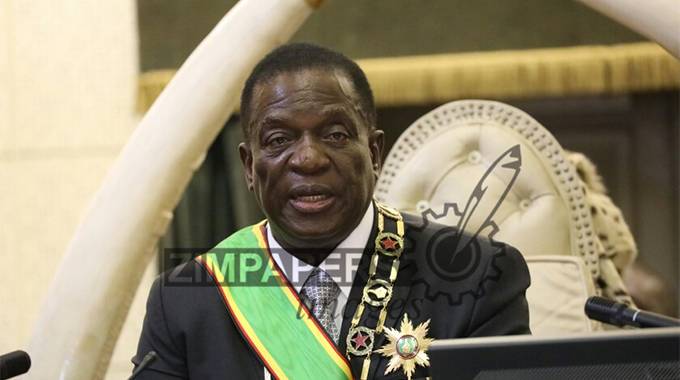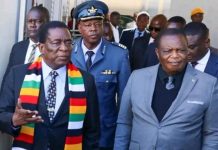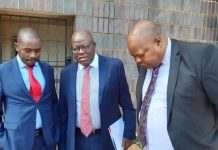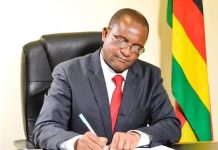FORMER Bulawayo South Member of Parliament and MDC Alliance national executive member Mr Eddie Cross is a candid fellow and straight talker given to incisive analysis of Zimbabwe’s socio-political and economic developments on his website www.eddiecross.africanherd.com.
As a member of the opposition MDC, he was a strident critic of the ruling Zanu-PF party and was particularly stinging in his criticism of economic policies adopted by the First Republic under former president Robert Mugabe.
In his own party, he was loathed for daring to criticise its leadership and having views which were seen as being at cross purposes with those at the helm. But as a man of principle, he stuck to them nonetheless.
Since the advent of the new dispensation under President Mnangagwa, Mr Cross has been consistent in his admiration of the reform agenda adopted by the Government.
A trained economist, Mr Cross has been charmed by the manner in which the Minister of Finance and Economic Development, Professor Mthuli Ncube, has, in a space of less than nine months, transformed Zimbabwe’s economic fortunes by turning a 40 percent budget deficit to a balance of payments surplus.
He has also praised the new administration’s other achievements in its re-engagement drive with the West and other nations, repeal of laws deemed repressive and impeding investment, enhancing the ease of doing business, implementing devolution, engaging opposition parties in dialogue and tackling the emotive issue of post-independence disturbances in Matabeleland and the Midlands provinces.
President Mnangagwa has also set up the Presidential Advisory Council (PAC) – a cross-section of some of the best brains in the country to advise him on the best way to achieve Vision 2030.
He has also trimmed the bloated civil service by offloading redundant manpower, including youth officers, slashing salaries of senior civil servants and retiring those that have reached the mandatory age of retirement.
Following revelations that 38 out of 93 State-owned enterprises audited in 2016 incurred a combined loss of $270 million as weak corporate governance practices and ineffective control mechanisms took their toll, in November 2018, Government gave Zimpost, TelOne, Telecel, POSB and NetOne six to nine months to privatise. A further six — including the six subsidiaries of the Industrial Development Corporation (IDC) — will also be privatised, while 11 (state owned) entities will be merged.
On the critical issue of security sector reform, President Mnangagwa has redeployed those members of the security services who have served their country with distinction to other areas of the establishment to strengthen Zimbabwe’s democracy.
These include General Constantino Chiwenga (Rtd), who is now Vice President, Major-General Sibusiso Moyo (Rtd), who is now Minister of Foreign Affairs and International Trade, and a host of other eminent sons who have been redeployed to the party and diplomatic service.
These reforms, among others that President Mnangagwa is instituting, have not received due recognition in the international community largely because of the perception problem the country continues to suffer as a result of its past.
Despite his best efforts in leading the country from a pariah state to one that is slowly reintegrating into the community of nations, President Mnangagwa is being vilified for sins of the First Republic — an unfair assessment according to Mr Cross.
Addressing the Cape Town Press Club last week, Mr Cross boldly declared that President Mnangagwa had taken Zimbabwe on a path of transformation and would turn around the country’s economic fortunes.
“There is no doubt in my mind that Mnangagwa will take Zimbabwe down a different route. And I think in the past nine months (since the election) he’s not received sufficient recognition from the international media for what he’s actually achieved,” he said.
Mr Cross also queried the reluctance by the international media to recognise President Mnangagwa’s achievements.
“[But] what more does this guy have to do, except stand on his head, to really persuade the world that Zimbabwe is on a new path? We were so far out of the field economically that we couldn’t expect to remain a player internationally. But in six weeks, we had a surplus. The International Monetary Fund couldn’t believe it. And from September onwards, we have run a surplus.”
Indeed, Zimbabwe deserves plaudits for the immense achievements notched since the new dispensation took over the reins of power. If critics of the Government like Mr Cross acknowledge the giant strides made by President Mnangagwa and his administration, surely the international community should take notice.
The significant progress is a starting point which should be nursed and encouraged by the rest of the world. Just like Rome was not built in a day, it will take time for the country to return to economic stability but the important thing is that the process has begun and is truly in motion.
The birth pangs of a new Republic are being felt now through the temporary painful effects of reforms but this turbulence will subside with time. Let’s be patient.






